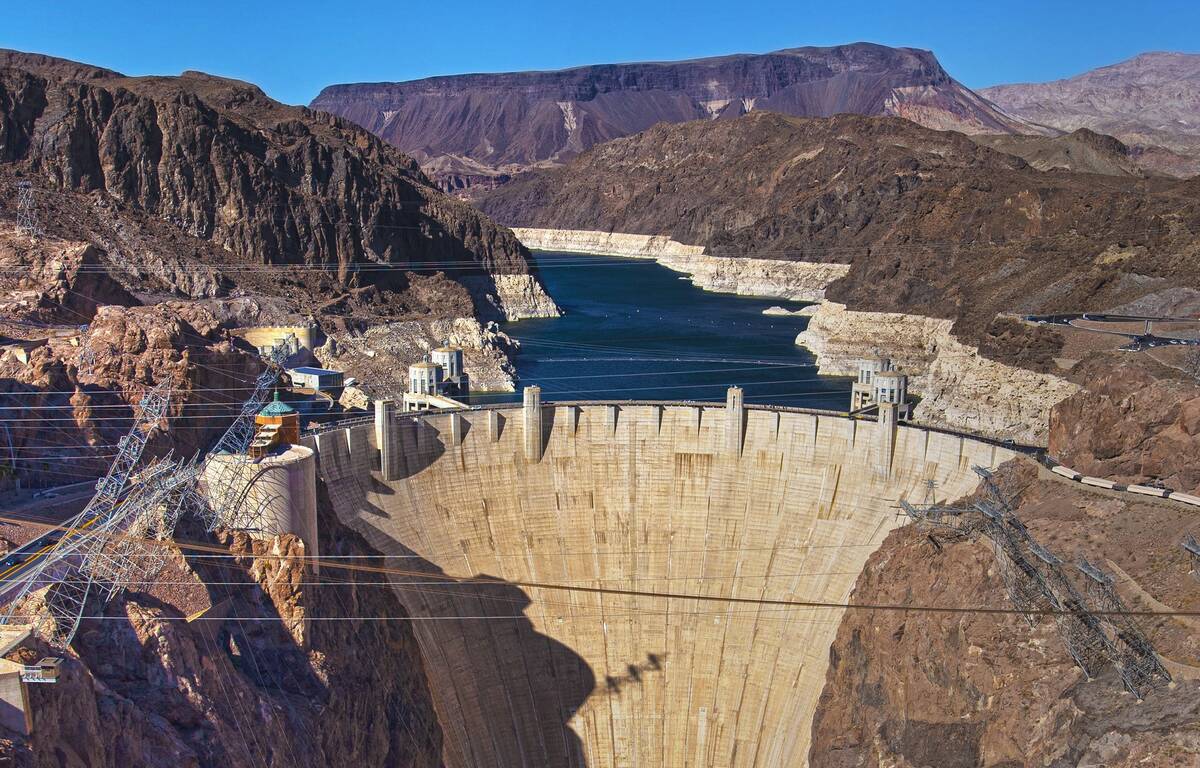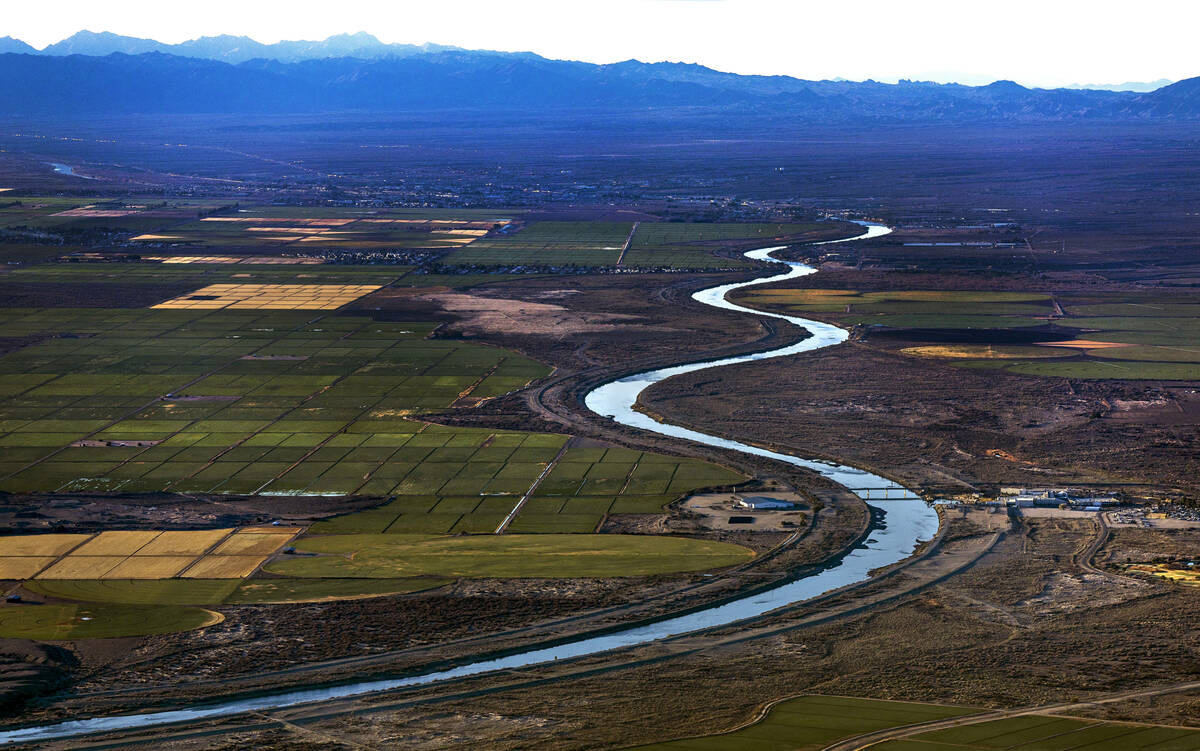Tightening the taps: Las Vegas water conservation bill clears Senate
A proposal to give local water managers the power to tighten the taps of Las Vegas Valley homes during water shortages cleared one of the last remaining hurdles Wednesday.
The Nevada state Senate voted 17-3 to pass Assembly Bill 220, an omnibus water conservation bill that would give the Southern Nevada Water Authority the power to restrict water use on individual homes in Clark County to 0.5 acre-feet of water, or 163,000 gallons, per year if the federal government reduces Nevada’s share of the Colorado River below a certain threshold.
The bill was amended in the Senate ahead of the vote Friday evening to clarify exactly when the water authority’s board of directors could consider enacting residential water restrictions.
Under the amended version of the bill, the authority could only invoke such restrictions if the federal government were to reduce Nevada’s share of the Colorado River to 270,000 acre-feet or less.
Nevada is legally entitled to consume 300,000 acre-feet of the Colorado River’s waters each year. Previously agreed-upon drought plans have reduced that down to 275,000 acre-feet this year based on the falling water levels at Lake Mead in recent years.
Under those same drought agreements, Nevada’s allocation would be cut to 270,000 acre-feet if Lake Mead were to fall to 1,025 feet.
The reservoir east of Las Vegas that supplies 90 percent of Southern Nevada’s water was at 1,053 feet in elevation as of Friday. But after years of falling, a near-record winter snowpack along the Rocky Mountains is expected to provide a substantial boost to Lake Mead this summer as the snow melts and makes its way to the Colorado River and its tributaries.
The U.S. Bureau of Reclamation forecasts Lake Mead’s levels to rise by nearly 20 feet by February 2024 to 1,071 feet, with the reservoir hovering around 1,060 feet in the spring of 2025.
If those projections hold true, it would keep Nevada above the threshold set by AB 220 to bring those residential water limits into play.
Nevada, California and Arizona this week struck an agreement aimed at buying the Colorado River system enough time for the states to hash out permanent guidelines for the river that will take effect beyond 2026.
Under that agreement, which still needs to be approved by the federal government, the Silver State would leave up to at least 75,000 acre-feet of water in Lake Mead this year and next year, with slightly smaller commitments in 2025 and 2026.
John Entsminger, the water authority’s general manager, told the Review-Journal this week that the three-state agreement would not require the agency to invoke the restrictions laid out in AB 220.
Because it was amended in the Senate, the measure still needs to be approved by the Assembly before it can go to Gov. Joe Lombardo’s desk. Whether the governor will sign the bill remains to be seen.
If approved, Nevada would become the first state to give a local water agency the power to limit the water use of individual homes. The bill would not affect multifamily homes such as apartments or commercial properties.
Water authority officials have said that the restrictions would mostly affect the top 20 percent of single-family residential water users in Clark County. The average home in the valley uses roughly 130,000 gallons each year, according to the water authority, and 80 percent of homes use less than 163,000 gallons each year.
The proposal has received significant pushback from property owners who have said the restrictions would be another penalty on people living on larger plots of land.
Starting this year, the Las Vegas Valley Water District implemented a new water rate structure that includes an excessive use fee aimed at the top 10 percent of water users.
The bill does not detail exactly how restrictions would work if implemented. But Colby Pellegrino, the water authority’s deputy general manager for resources, said during a legislative hearing that it would most likely involve a flow-limiting device, which would still allow water to flow into homes, but at lower amounts.
Contact Colton Lochhead at clochhead@reviewjournal.com. Follow @ColtonLochhead on Twitter.




















